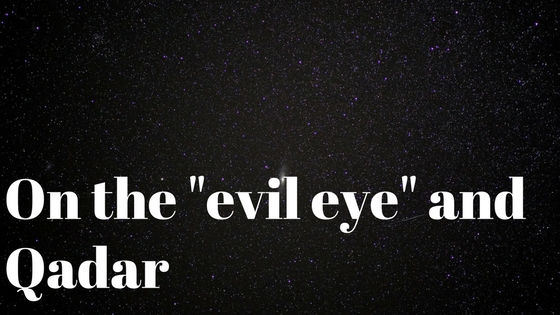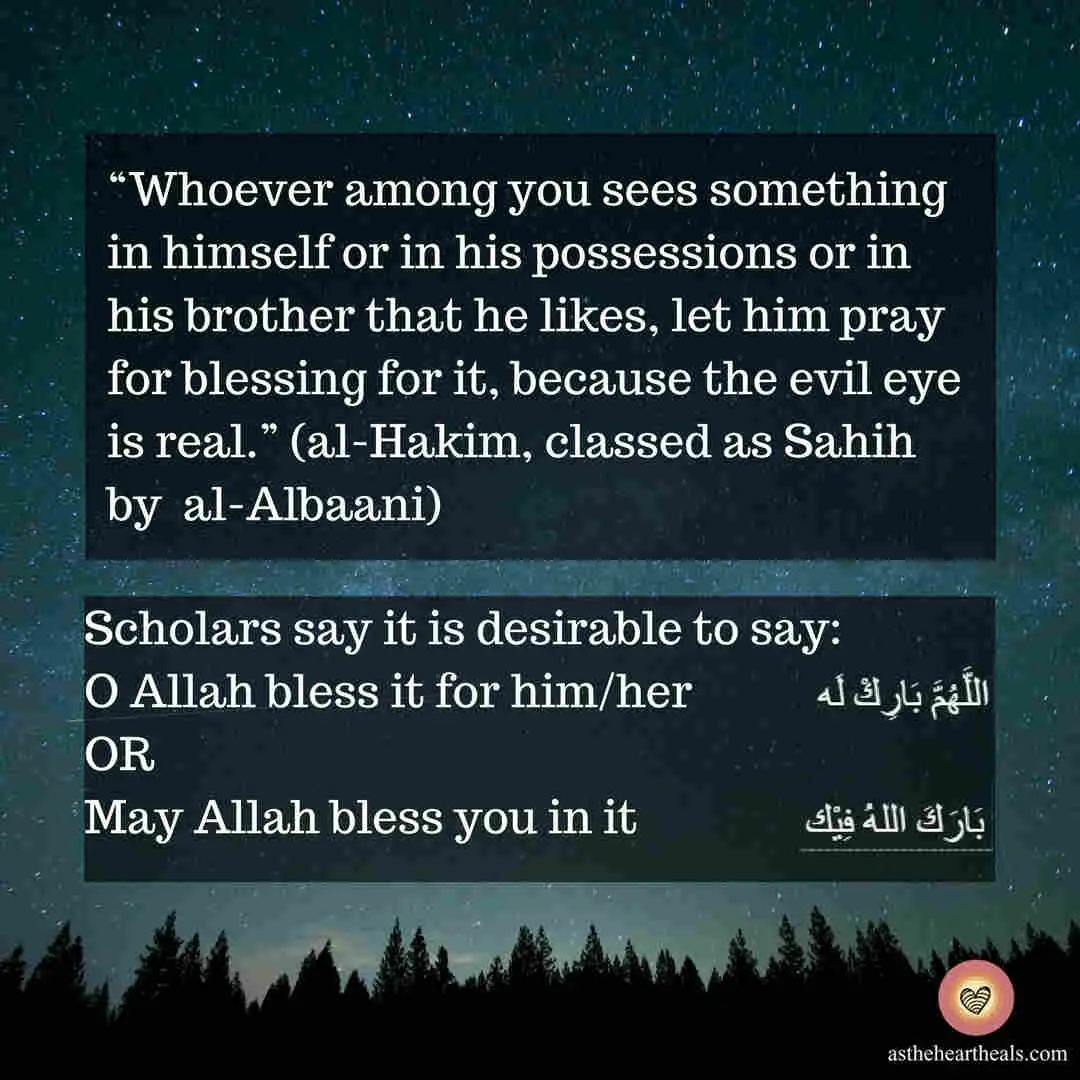
We often find two extremes when it comes to ideas about the evil eye (al-Ayn). On the one hand, there are those that brush it off completely as “superstition”, and on the other there are those that are paranoid about it and attribute every little thing to the evil eye, often completely rejecting medical explanations or precautions.
Our deen teaches us a balance between these two extremes. The Prophet (ﷺ) told us that the evil eye is indeed real, but he also told us to trust Allah (swt), seek protection with Him and to use other medical solutions to rectify a problem. While the evil eye is indeed real, it cannot override the decree of Allah (swt) or Qadar – it can only bring about what Allah (swt) has already decreed for you.
Ibn Abbas (رضى اللهُ عنه) narrated that the Prophet Muhammad (ﷺ) said: “The evil eye is real and if anything were to overtake the divine decree, it would be the evil eye.” (Muslim, Ahmad and At-Tirmidhi)
At the same time, our Messenger (ﷺ) is also reported to have said: “Know that if the nation were to gather together to benefit you with anything, they would not benefit you except with what Allah had already prescribed for you. And if they were to gather together to harm you with anything, they would not harm you except with what Allah had already prescribed against you. The pens have been lifted and the pages have dried.” (Related by at-Tirmidhi, classed as good and sound)
Allah says in the Quran: “And if Allah should touch you with adversity, there is no remover of it except Him. And if He touches you with good – then He is over all things competent.” (Surah Al- An’am: 17)
While our deen teaches us duas and measures to prevent and rectify the evil eye, it also teaches us to use other medicines and procedures to cure an illness. The perfect balance would be using both of these means.
Ibn Abbas (رضى اللهُ عنه) reported that the Messenger (ﷺ) said: “Medicine is part of Qadar, it may benefit with Allah’s permission.” (At- Tabarani, authenticated in Sahih Al-Jaami)
Imam Ahmad, Malik, al-Nasai and Ibn Hibban narrated an incident when Sahl ibn Haneef travelled with the Prophet Muhammad (ﷺ) towards Makkah, until they were in the mountain pass of al-Kharar in al-Jahfah. While Sahl was bathing over there, Amir ibn Rabee’ah, one of Banu ‘Adiyy ibn K’ab looked at him and said: “I have never seen such beautiful skin as this, not even the skin of a virgin,” (an expression to admire the beauty of his skin) and Sahl fell to the ground. The people around him went to the Prophet Muhammad (saw) and asked him to do something for Sahl as he could not even raise his head.
The Messenger (ﷺ) said: “Do you accuse anyone with regard to him?” They said, “‘Amir ibn Rabee’ah looked at him.” So the Messenger of Allah (saw) called ‘Amir and rebuked him strongly. He said, “Why would one of you kill his brother? If you see something that you like, then pray for blessing for him.” Then he said to him, “Wash yourself for him.” So he washed his face, hands, forearms, knees and the sides of his feet, and inside his izaar (lower garment) in the vessel. Then that water was poured over him, and a man poured it over his head and back from behind. He did that to him, then Sahl got up and joined the people and there was nothing wrong with him. (Classed as authentic by al-Albani in al-Mishkat)
In another narration from Abu Sa’eed, the angel Jibreel came to the Prophet (ﷺ) and said: “O Muhammad, are you ill?” He said, “Yes.” He said, “Bismillaahi arqeeka min kulli shay’in yu’dheeka, min sharri kulli nafsin aw ‘aynin haasid Allaahu yashfeek, bismillaahi arqeek (In the name of Allah I perform ruqyah for you, from everything that is harming you, from the evil of every soul or envious eye may Allah heal you, in the name of Allah I perform ruqyah for you).” (Narrated by Muslim)
It is particularly interesting that in many of these narrations the Prophet (ﷺ) advised people that if they see someone has something they like, they should pray to Allah to bless that person in it. Al-Ayn, or what often gets translated as the evil eye, does not necessarily have to be driven by an evil intention. The person who sees something they like with another may not always wish harm for that person, but they can still end up afflicting the other with al-ayn if they do not pray to Allah to bless them in it, which is why the Prophet (saw) advised us strongly to pray for Allah’s blessings when we like something that someone has.
Scholars say it is desirable to say:
O Allah bless it for him/her اللَّهُمَّ بَارِكْ لَه
OR
May Allah bless you in it بَارَكَ اللهُ فِيْك

We are also advised to keep reciting the daily duas for protection, among them are the Surahs Al-Falaq and An-Naas and the Ayatul-kursi to keep ourselves in Allah’s protection. And at the end of it all comes our belief in Qadar, nothing that was not decreed for us by Allah can hit us and no one in the world can bring us any sort of harm if Allah wishes to protect us from it.

